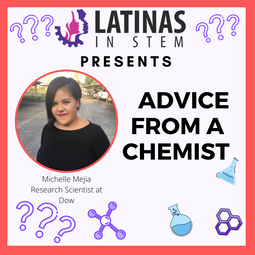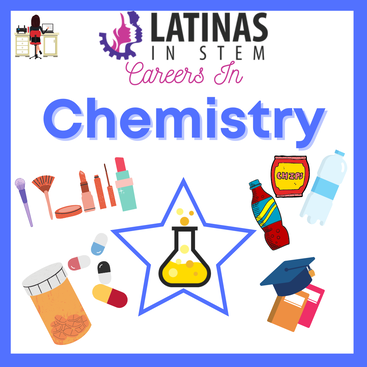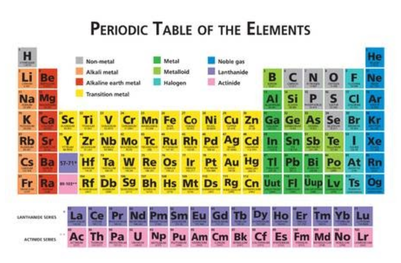Which careers can I pursue with a degree in chemistry? Most people think a degree in chemistry means you are in a lab wearing a lab coat, but there are so many options. A degree in chemistry means you can: teach, do research at national labs, develop new materials for food packaging, develop new cosmetic formulations, or work in a forensics lab. You can also work to examine minerals and rocks, work for oil companies, or work for automobile companies and tech companies. Chemists are needed on every aspect of our lives- from new materials to final products. We have a blog post that highlights this a bit more, check it out!
Do you enjoy what you do? Why? I love what I do. My job gives me a variety of projects to work on. I work as an analytical chemist for a materials company and therefore I get to work on everything from raw materials to final products (things we use in everyday life). This makes my day-to-day responsibilities and job interesting, as every day there is a new problem to solve. I have the ability to work on customer issues, long term R&D projects, and to innovate.
Have you had a manager who was not a chemist? What did they do well? What could they have done better? No, however I have had managers that do not have a background in the techniques and chemistry that I work on. I used it as an opportunity to share with them the techniques and as an opportunity for me to discuss why my projects and techniques were important. At first they didn’t understand all aspects of my job, but they were open to learning and always asked questions, which made for good conversations. I think it is important to remember (not only for managers), that we need to be open to learning. It doesn’t matter if it’s been 20 years or 1 year in a company/group, you can always learn something. My manager was open to learning from me and that made for a good work environment.
How did you choose your career? After my first year of graduate school, I knew I wanted to go into industry- I loved being in the lab making new compounds and analyzing them. As I was wrapping up my third year of graduate school, I started to research companies and was looking for somewhere that I could still be in the lab and be pushed to innovate. I am thankful that I have found that and thatI enjoy my job.
Chemicals have a bad rep; Are all chemicals bad? No, the good chemicals are often overshadowed by the bad chemicals. Yes, there are some things out there that no one should ever be exposed to, however chemicals are all around us. The aspirin you take for a headache, the non-stick pan you cook on, the bag your cereal comes in, and water- these are all chemicals. There is no way to live a chemical free life because everything around us is made of chemicals.
How can I make chemistry fun in the classroom? I knew I wanted to go into chemistry because of my high school teacher. She made sure to relate our experiments and discussions in the classroom to everyday life. We did experiments such as testing the amount of citric acid in juice, or measuring copper in a pre-1982 penny and comparing it to a post 1982 penny. She took the theories and made them applicable to life outside of the textbook, that is what made it fun for me.





 RSS Feed
RSS Feed

